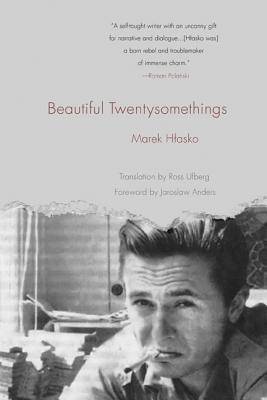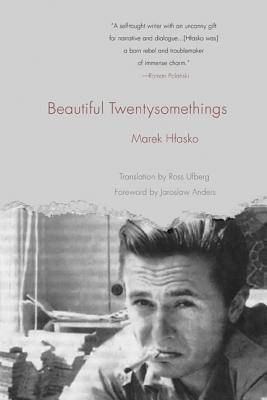
- Retrait gratuit dans votre magasin Club
- 7.000.000 titres dans notre catalogue
- Payer en toute sécurité
- Toujours un magasin près de chez vous
- Retrait gratuit dans votre magasin Club
- 7.000.0000 titres dans notre catalogue
- Payer en toute sécurité
- Toujours un magasin près de chez vous
Description
Marek Hlasko's literary autobiography is a vivid, first-hand account of the life of a young writer in 1950s Poland and a fascinating portrait of the ultimately short-lived rebel generation. Told in a voice suffused with grit and morbid humor, Hlasko's memoir was a classic of its time. In it he recounts his adventures and misadventures, moving swiftly from one tale to the next. Like many writers of his time, Hlasko also worked in screen writing, and his memoir provides a glimpse into just how markedly the medium of film affected him from his very earliest writing days.
The memoir details his relationships with such giants of Polish culture as the filmmaker Roman Polanski and the novelist Jerzy Andrzejewski. Hlasko is the most prominent example of a writer who broke free from the Socialist-Realist formulae that dominated the literary scene in Poland since it fell under the influence of the Soviets. He made his literary debut in 1956 and immediately became a poster boy for Polish Literature. He subsequently worked at some of the most important newspapers and magazines for intellectual life in Warsaw. Hlasko was sent to Paris on an official mission in 1958, but when he published in an \u00e9migr\u00e9 Parisian press his novel of life in post-War Poland, he was denied a renewal of his passport. In effect, he was called back to Poland, and when he refused to return he was stripped of his Polish citizenship. He spent the rest of his life working in exile.
Marek Hlasko was a rebel whose writing and iconoclastic way of life became an inspiration to those of his generation and after. Here, in the first English translation of his literary memoir, Ross Ufberg deftly renders Hlasko's wry and passionate voice.
Spécifications
Parties prenantes
- Auteur(s) :
- Traducteur(s):
- Editeur:
Contenu
- Nombre de pages :
- 232
- Langue:
- Anglais
- Collection :
Caractéristiques
- EAN:
- 9780875806976
- Date de parution :
- 01-10-13
- Format:
- Livre broché
- Format numérique:
- Trade paperback (VS)
- Dimensions :
- 137 mm x 221 mm
- Poids :
- 299 g

Les avis
Nous publions uniquement les avis qui respectent les conditions requises. Consultez nos conditions pour les avis.






